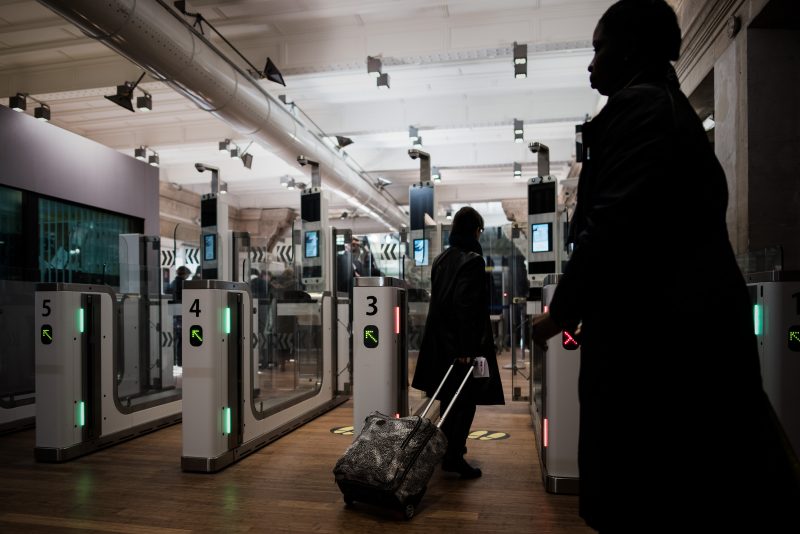Canada, Netherlands to pilot test epassports for transatlantic flights
A Eurostar passenger going through an automated ePassport gate equiped with a facial recognition system the gare du Nord in Paris: Canada and the Netherlands hope to reproduce the experience on trans-Atlantic flights by 2020 (PHILIPPE LOPEZ)
Montreal (AFP) – Canada and the Netherlands announced Wednesday the launch of a pilot project for paperless travel between the two countries.
Identity data that is usually stored on a chip on a passenger’s passport will instead be securely stored and encrypted on their mobile device.
Passengers flying from Montreal to Amsterdam will be able to manage their encrypted identity data, consenting to share it with border authorities, airlines and others.
It would be checked against biometrics at security checkpoints and airplane boarding gates “without the need for a physical passport,” said a statement by the World Economic Forum, which is leading the initiative.
The so-called Known Traveller Digital Identity project is to be tested internally throughout 2019, with the first end-to-end paperless journey expected to take place in early 2020, it said.
“By 2030, international air travel is expected to rise to 1.8 billion passengers, up 50 percent from 2016. With current systems, airports cannot keep up,” the World Economic Forum’s mobility chief Christoph Wolff said.
“This project offers a solution. By using interoperable digital identities, passengers benefit from a holistic system for secure and seamless travel. It will shape the future of aviation and security.”
Air Canada and KLM Royal Dutch Airlines, as well as airports in Montreal, Toronto and Amsterdam are taking part in the pilot, backed by technology companies Accenture, Vision Box and Idemia.
Disclaimer: Validity of the above story is for 7 Days from original date of publishing. Source: AFP.


